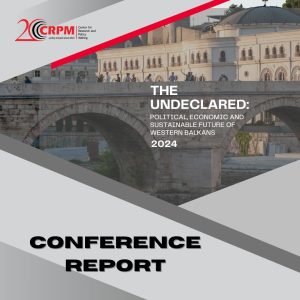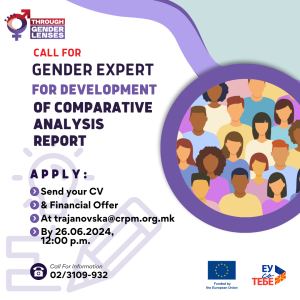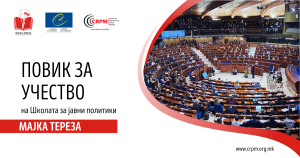CRPM Policy Analysis Training, Explanation of the Sessions (key words)
- Introduction to the training and of the participants, understanding the expectations of the participants, establishing the rules of the game, the working hours and the etiquette in the classroom.
- Defining public policy, what is policy, what is public policy, what ‘should’ public policy do, who makes public policies, key stakeholders, steps in policy making (linear- logical model, cycle), objectives for the analysts in the policy cycle.
- What is policy research and analysis, diverse approaches and methods in policy research, what is the main goal of policy research, steps in policy research, outcome matrix criteria, is there objectivity in policy research, why is there need for policy research, general issues policy analysts should take into account, outputs of policy analysis.
- Exercises in policy analysis- working on six practical cases.
- About writing policy papers-the purpose of the policy paper, structural elements of the policy paper, types of policy papers, about policy study, policy brief and policy memo, common elements of policy papers, planning checklist for writing policy papers.
- Policy advocacy- when does analysis and research influence policy making, what is policy advocacy, how to influence policy and advocate, communication strategy, policy networks and actors, guidelines for successful advocacy, discussion on participants’ experience in advocacy.
- Differences between policy analysis and academic research- description of policy analysis, academic research, what are the main differences?
- About the policy analyst- on models of advise given to clients, what is the strategy of a policy analyst, the difference between policy analyst/advisor and a consultant, who are the clients of policy analysts, why become one, what are the skills needed, the key skill-doing interviews explained, types of policy analysts in the field.
- Practical considerations in policy research- convert your research design into a “to get” list, on data management, about field work, particularities of policy research in the Western Balkans, on qualitative data analysis.
- Why policy analysis in the Balkans?- general reasons, specific reasons, a role for think-tanks, implications for Macedonia.
- Practical considerations on policy analysis in the Balkans- what does a good policy analysis entail, what are the ever green policy questions for this region, where to get data, the importance of legacies, legacies of the past and the future, team work, how to write well the reports, phases in policy writing.
- Recapitulation and tactics for good policy analysis- general tactics, specific issues, test mechanism about the success of the impact of the policy report.





